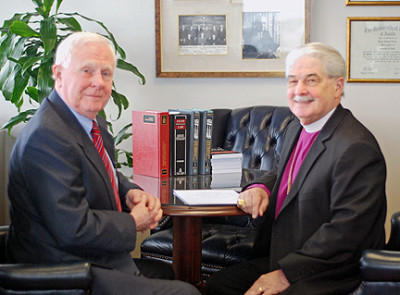Texas Supreme Court rules against Episcopal Church: $100M in properties belong to breakaway diocese

Texas’ highest court ruled that approximately $100 million in church properties of a diocese whose leadership left The Episcopal Church over theological differences belongs to the breakaway group.
The Texas Supreme Court released an opinion last Friday in The Episcopal Diocese of Fort Worth v. The Episcopal Church in which they partially reversed an earlier ruling against the breakaway leadership.
At issue was who controlled the diocese name and property — leadership chosen by the national denomination or the breakaway leadership that joined the more conservative Anglican Church in North America.
The Episcopal Church said it controlled the property through the Dennis Canon, a measure labeling all church properties as being held in trust for the benefit of the national denomination.
Justice Eva Guzman delivered the opinion of the court, ruling that changes made to the Diocese’s Constitution and Canons in 1989 prevented the Dennis Canon from being applicable.
“While it is true, as TEC says, that the diocese’s organizational documents prohibited the adoption of canons inconsistent with the national church’s constitution and canons, revocation is not inconsistent with a revocable trust,” wrote Guzman.
“Moreover, in the twenty years between revocation and eruption of a dispute over the property, TEC lodged no objection to the amended canon and does not now contend the 1989 amendment is invalid for any other reason than purported ‘inconsistency.’”
In a statement released last Friday, the Anglican diocesan leadership celebrated the high court decision, saying they were “grateful for the Court’s hard work on this decision and for the clarity with which it was rendered.”
“We give thanks for our visionary founding Bishop, the Rt. Rev. A. Donald Davies, and for those who assisted him in setting the legal and temporal foundations of the Diocese and Corporation,” they stated.
“We praise God for the steadfast faith and leadership of our third Bishop, the Rt. Rev. Jack L. Iker, a true shepherd of the flock, who made many sacrifices throughout his episcopate for the sake of Christ’s holy Church.”
Episcopal Bishop Scott Mayer, who oversaw the continuing Episcopal diocesan leadership, sent a letter to supporters expressing disappointment at the ruling.
Mayer noted that he and the other Episcopal leadership were considering their “next steps” and that “as followers of Jesus Christ, we live in hope.”
“I ask for your prayers and urge us all to stay focused on the saving gospel of Jesus Christ and on our mission and ministries in the days ahead,” wrote Mayer. “I remain convinced that we are right in our affirmation that we are the continuing Episcopal Diocese of Fort Worth and that I am its bishop.”
In 2008, a majority of the Fort Worth Diocese voted to leave The Episcopal Church over the increasing liberal theological direction of the mainline Protestant denomination.
A major point was the ordination of the denomination’s first openly gay bishop, the Rev. Gene Robinson, which led to other churches and dioceses opting to depart the denomination.
Litigation over who rightfully owned the diocesan property ensued in 2009, with the Fort Worth Court of Appeals ruling in favor of The Episcopal Church in April 2018.
“Although Appellees argue that under state associations law they were within their rights to remove the diocese and diocesan property from TEC, such law applies to the rules used by associations to regulate, within legal limits, their own internal affairs, not to the question of an association’s identity,” read the 2018 ruling.
“Individual members of a parish may decide to worship elsewhere; a majority of individual members of a parish or diocese may decide to do so. But when they leave, they are no longer ‘Episcopalians’ as identified by TEC; they become something else. And that something else is not entitled to retain property …”






















